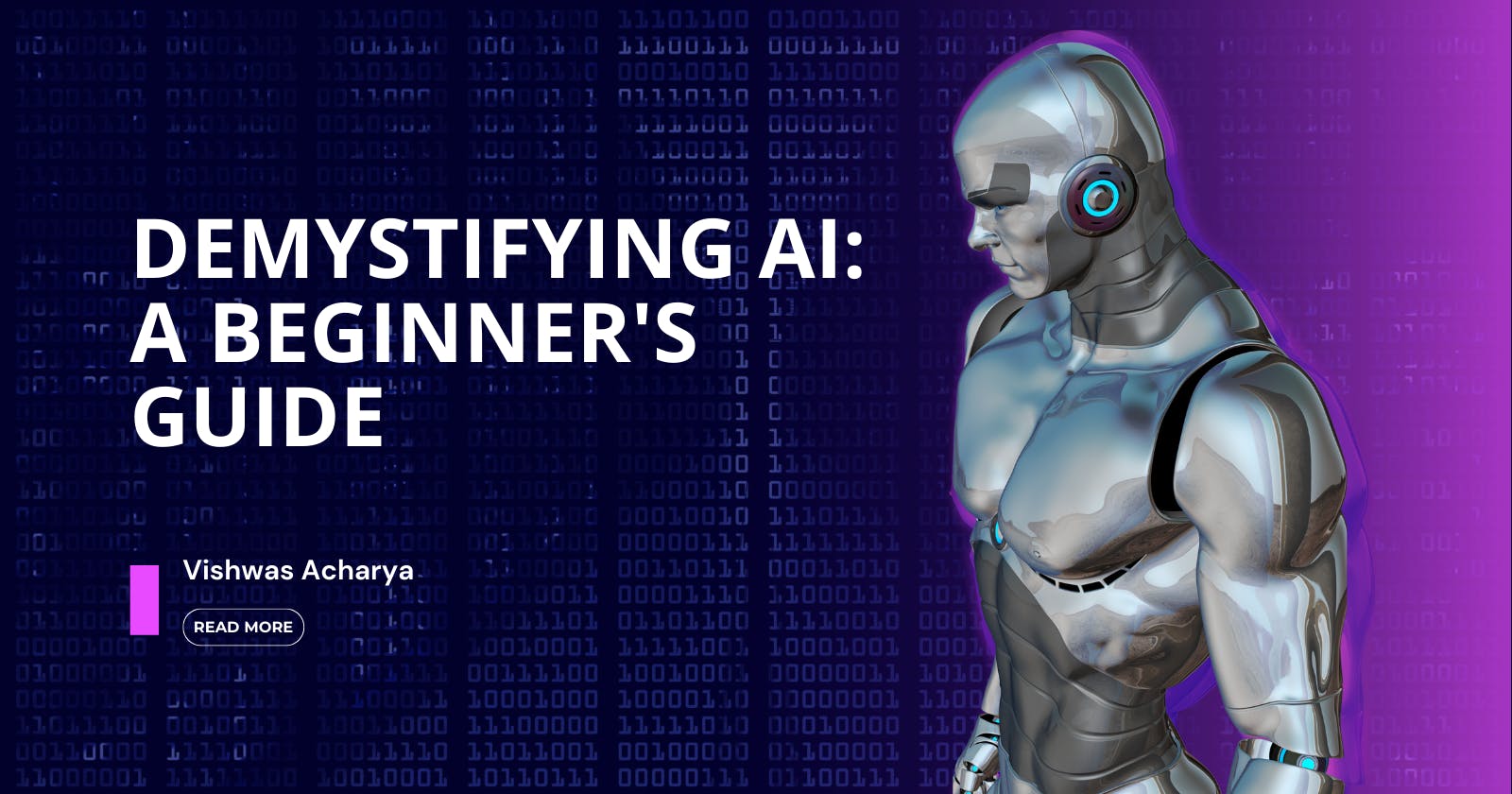Introduction
Artificial Intelligence (AI) has become a buzzword in today's tech-driven world, but for many, it remains an enigma. This beginner's guide aims to demystify AI, providing a comprehensive understanding of what AI is, how it works, its applications, and its impact on various industries.
What is AI?
At its core, AI refers to the simulation of human intelligence in machines that are programmed to think and learn like humans. These machines are designed to perform tasks that typically require human intelligence, such as visual perception, speech recognition, decision-making, and language translation.
Understanding Machine Learning
One of the fundamental concepts of AI is Machine Learning (ML). This subset of AI enables machines to learn from data and improve their performance without explicit programming. ML algorithms analyze vast datasets, identifying patterns and making predictions based on that data.
The Different Types of AI
1. Narrow AI (Weak AI)
Narrow AI, also known as Weak AI, is designed to perform specific tasks and operates within a limited domain. Examples include virtual assistants like Siri and chatbots used for customer support.
2. General AI (Strong AI)
General AI, or Strong AI, is a theoretical concept where machines possess the ability to understand, learn, and apply knowledge across diverse tasks—a level of intelligence comparable to human capabilities.
AI Applications Across Industries
AI's versatility allows it to revolutionize various industries, leading to increased efficiency, productivity, and innovation.
1. Healthcare
AI is transforming the healthcare sector by aiding in medical diagnosis, drug discovery, and personalized treatment plans. It can analyze vast medical records and research data to identify patterns that may escape human observation.
2. Finance
In the financial sector, AI is used for fraud detection, algorithmic trading, and customer service. AI-powered chatbots assist customers with their inquiries and financial planning.
3. Education
AI enhances the learning process through personalized tutoring and adaptive learning platforms. It can assess individual student progress and tailor educational content accordingly.
The Ethical Implications of AI
While AI offers numerous benefits, it also raises ethical concerns. These include data privacy, bias in AI algorithms, and the impact on jobs due to automation. Striking a balance between technological advancement and ethical considerations remains crucial.
Overcoming AI's Limitations
Although AI has made significant strides, it still faces limitations. AI systems heavily rely on data, and incomplete or biased datasets can lead to inaccurate outcomes. Moreover, AI lacks genuine emotions and creativity, which are inherent in human intelligence.
The Future of AI
AI continues to evolve rapidly, with ongoing research and development paving the way for breakthroughs. The future promises advancements in natural language processing, computer vision, and robotics, shaping a world where AI becomes an integral part of our daily lives.
Conclusion
In conclusion, AI is an ever-expanding field with profound implications for society. Understanding the basics of AI is essential for everyone, as it influences various aspects of our lives. Embracing AI responsibly and ethically will lead to a future where humans and machines coexist harmoniously.
By Vishwas Acharya 😉
Checkout my other content as well:
YouTube:
Podcast:
